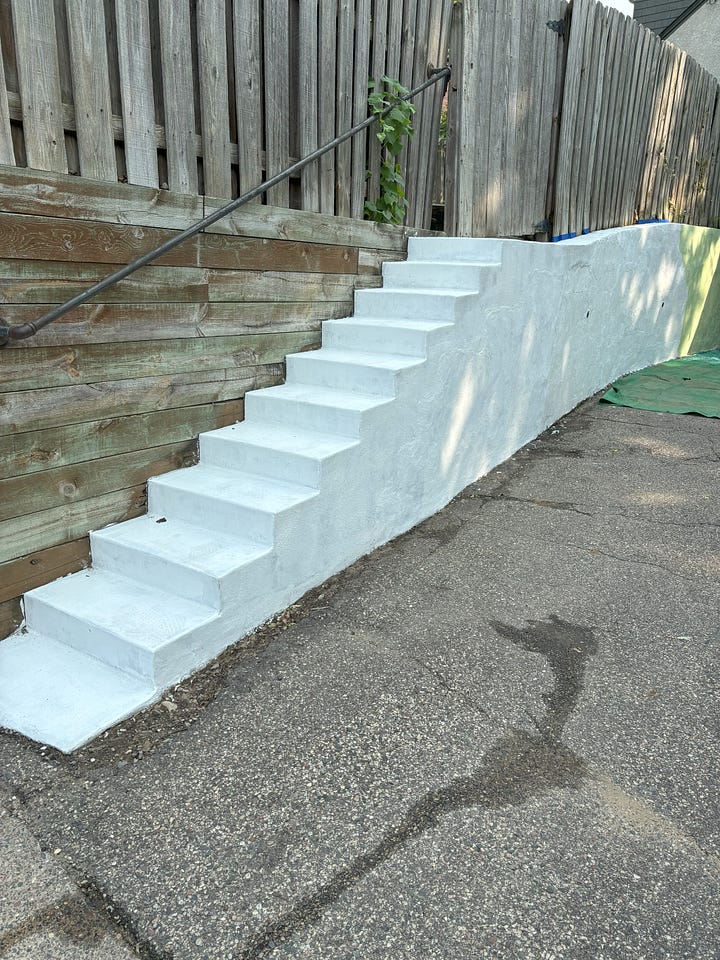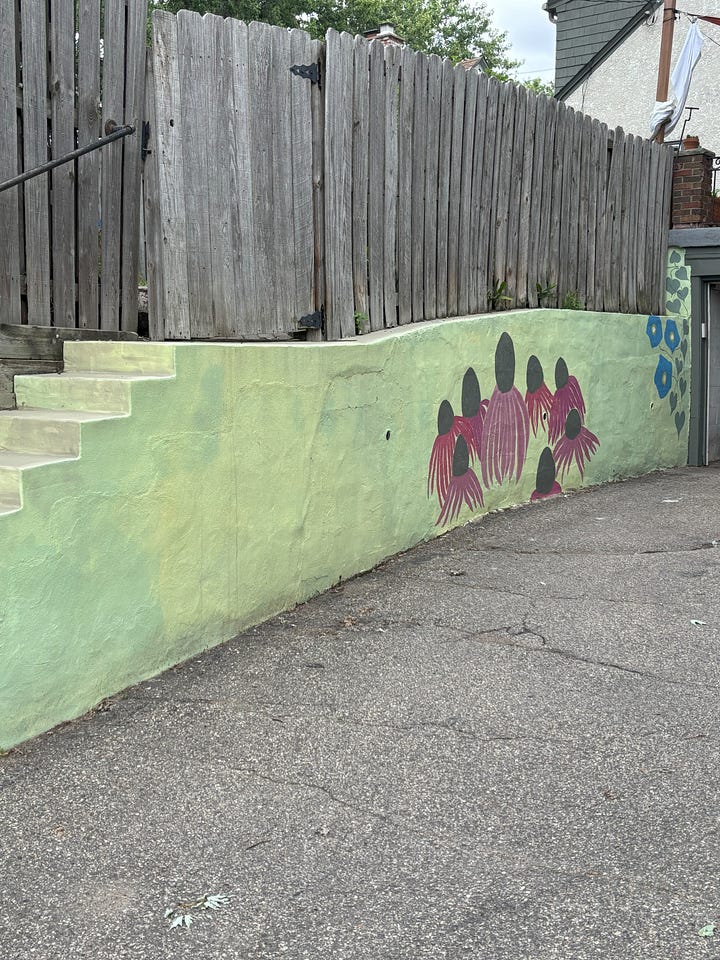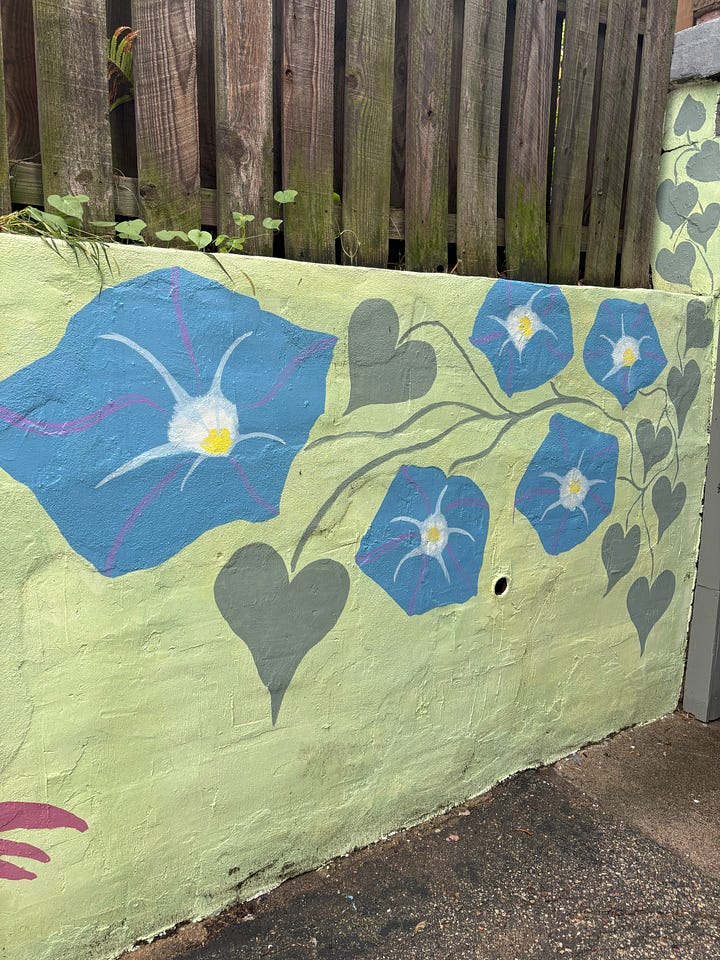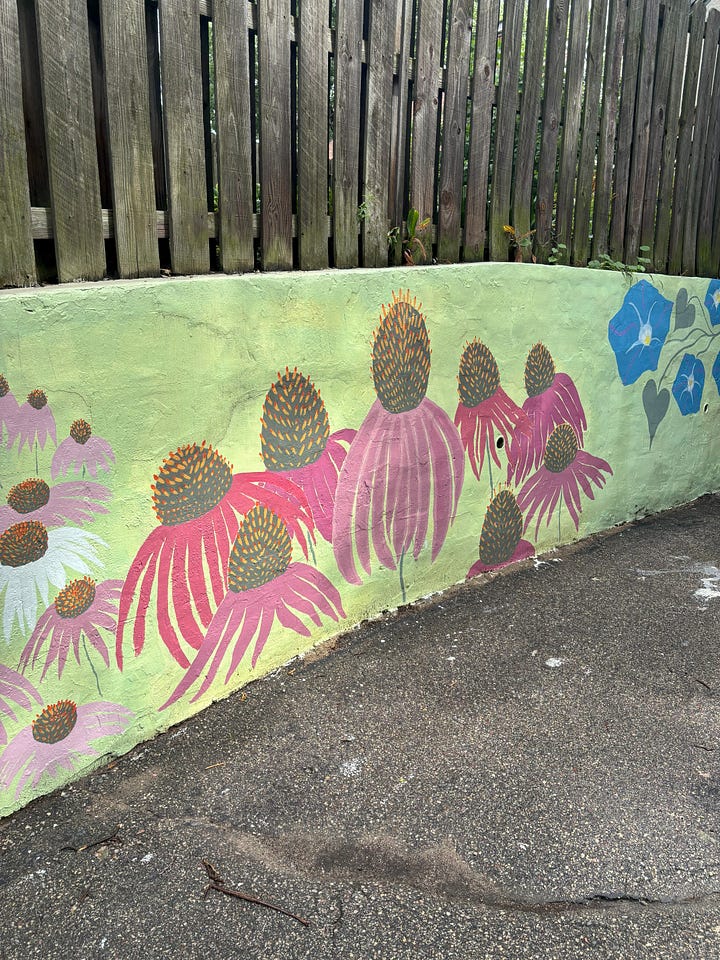



This spring, I facilitated a Creativity Cohort, a 13-week process to foster creativity and self-discovery. We worked through The Artist’s Way together, it was energizing and transformational. Every participant overcame struggles of one kind or another, and shifted their perspective. One thing I learned about myself was that my fear of failure has an insidious way of keeping me from acting on ideas. It doesn’t always stop me in my tracks, though. Sometimes it trips me up because I spend so much energy researching, planning, or preparing that it leeches the fun out of the idea. It can be important to avoid crashing and burning in many circumstances, but we can learn a lot from failure. So this summer, I decided my mural would be a laboratory of failure.
I’d been thinking about painting the wall next to our driveway for two years. Trips to the Pilsen neighborhood in Chicago and the Wynwood neighborhood in Miami sparked my inspiration. Two years of poking at the idea, collecting images, sketching, and measuring, I was overwhelmed. This idea started as something light and fun. But I turned it into a weighty to-do list item. I didn’t need or want another project; I wanted to slap some paint on a wall. So I put the graph paper away and started painting. I’ve made mistakes and messes, and I’ll make more of both before the snow flies.
In chapter one of The Artist’s Way, Julia Cameron wrote, “Give yourself permission to be a beginner. By being willing to be a bad artist, you have a chance to be an artist, and perhaps, over time, a very good one.” For me, being a beginner muralist is less pressure than being a beginner writer. I may never paint another mural, and I’m not attached to developing those skills. But painting a mural is helping me learn to take risks and falter in ways I haven’t always allowed in the past. It’s just paint.
Some of my earlier Substack posts feature writing that falters and fails. I’d do things differently if I had to do it over again, but going backward is not progress. I could change those posts, edit them or take some down. But putting effort into old work would pull me away from the ideas that are more alive for me now. As Cameron says, “Progress, not perfection, is what we should be asking of ourselves.” For me, progress means writing and continuing to fail, learn, and improve.
Coming to this perspective hasn’t been a linear path, but The Artist’s Way has increased my awareness and provides useful guidance. This fall, I’m offering another round of the Creativity Cohort so here’s my shameless plug to encourage you to join. If you’ve been meaning to try the book, working on it with a group can be a game-changer. Even if “artist” is a word you’d never assign to yourself, this experience can expand your imagination and open new possibilities.
We’ll meet one hour a week on Mondays at noon (central), September 8 through December 1. The time commitment is about 4-6 hours each week. Find the details here.
Intrigued? Send me a note.


